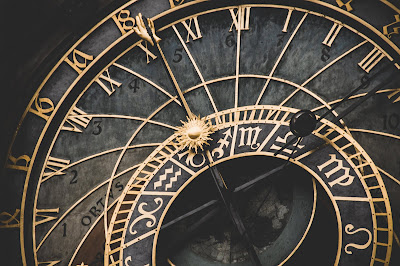January through June of 2019 have to have been the quickest
six months of my life. And experience tells me that the next six months of the
year won’t be any more leisurely if left to their own devices. How can I slow
down time—or at least make it feel slower?
Summertime is the perfect time to do that, because generally
the pace of life tends to slow down on its own. Many people schedule vacations,
kids are out of school, and most of us make an effort to chill a little more
during the hot months.
What it boils down to for me is becoming more mindful of the
quality, pace, and texture of my days.
Again.
(Sigh.)
Here are a three simple ways to slow down and become more
mindful that I swear I’m going to try. Want to join me?
Build in breaks. Use a timer if necessary. After a work
session, schedule at least a 15-minute break, to stretch, drink a glass of
water, walk around the house or office, look outside at blooming nature, and so
on. I'm TERRIBLE at this. I tend to rush from one project to the next without
taking a few minutes to reset and suddenly it’s 5 p.m. (And it has to be a break.
No sorting the mail (or reading emails), tidying up the kitchen, or pretending
that chores are a break. They are NOT.)
Create rituals throughout the day. First thing in the
morning, take your coffee outside to see what’s going on in the yard, sit in
meditation for 10 minutes and do a few yoga poses, or climb back in bed to
write in a journal and read something inspirational. At lunchtime, pause to
appreciate the smell and appearance of your food before eating, take a short
walk afterwards. At bedtime, jot down three good things that happened to you
today, read a poem, or practice relaxation exercises in bed. Rituals can help slow us down, as long as we don’t let them
become mindless ruts.
Revise the to-do list. Take at least one thing off it, and
when you’re done with your list, you're done. Go put your feet up and read a
book. Or whatever your favorite thing happens to be.
I’ve written about these things before, and tried them all
with varying degrees of success, and it’s time to get back into practice. Do I
control my life, or does it control me? Do I want to look back in December and
wonder where the last six months went? No, I do not.
What are your tips and tricks for slowing down and being
more mindful? Please share in the comments—I’m convinced we could all use some
help in this area.
More posts about mindfulness and slowing down:
Also, check out the Action for Happiness July calendar.
Today’s prompt: Make a list of things you’re looking forward to. I love it!























.jpg)


